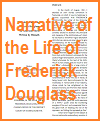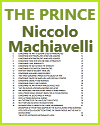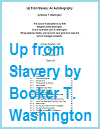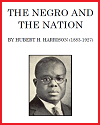Printable Nonfiction Texts (PDFs) |
|---|
| www.studenthandouts.com > Printable Texts and eBooks > Nonfiction eBooks and Workbooks |
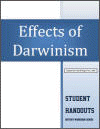 |
 |
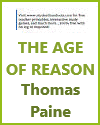 |
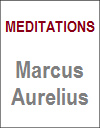 |
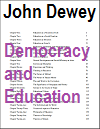 |
||||||
| Effects of Darwinism by H.G. Wells | Common Sense by Thomas Paine | The Age of Reason by Thomas Paine | Meditations by Marcus Aurelius | Democracy and Education by John Dewey |
|
Reading our free printable nonfiction texts and workbooks offers numerous benefits to students across various academic disciplines and in their overall intellectual development. Here are some of the key advantages.
Acquisition of Knowledge: Nonfiction texts convey factual information and real-world knowledge, enabling students to gain insights into a wide range of topics, including history, science, culture, and current events. Critical Thinking: Nonfiction reading encourages critical thinking as students evaluate and analyze information, arguments, evidence, and sources. They learn to distinguish fact from opinion and identify bias. Research Skills: Engaging with nonfiction texts helps students develop research skills by teaching them how to locate, assess, and synthesize information from multiple sources. This is essential for academic projects and problem-solving. Vocabulary and Language Development: Nonfiction texts often introduce students to specialized vocabulary and complex language structures, enhancing their language skills and vocabulary acquisition. Reading Comprehension: Reading nonfiction texts improves reading comprehension skills, as students must extract key information, identify main ideas, and make inferences from the text. Contextual Understanding: Nonfiction texts provide context for historical events, scientific concepts, and social issues, allowing students to better understand the world around them. Critical Awareness: Exposure to nonfiction materials encourages students to engage critically with the world and question the information they encounter, fostering media literacy. Writing Skills: Reading nonfiction texts can inspire students' writing by exposing them to various writing styles, structures, and argumentation techniques. Broadened Perspectives: Nonfiction texts offer diverse perspectives and viewpoints, promoting empathy, cultural understanding, and open-mindedness. Preparation for College and Career: Reading nonfiction materials prepares students for the types of reading they will encounter in higher education and the workplace, where informational texts are prevalent. Interdisciplinary Learning: Nonfiction texts span various academic disciplines, allowing students to make connections between different subjects and see how knowledge is interconnected. Critical Evaluation of Sources: Students learn how to assess the credibility and reliability of sources, an essential skill for academic research and responsible citizenship. Problem-Solving Skills: Nonfiction texts often present real-world problems and solutions, encouraging students to think critically about complex issues and propose solutions. Current Events and Civic Engagement: Nonfiction reading keeps students informed about current and past events and social issues, fostering civic engagement and a sense of responsibility toward their community and society. Lifelong Learning: Developing the habit of reading nonfiction promotes a lifelong love of learning and encourages individuals to stay informed and engaged with the world throughout their lives. Overall, reading nonfiction texts is a fundamental skill that not only supports academic success but also equips students with the tools and knowledge they need to be informed, critical thinkers and active participants in society. |
| www.studenthandouts.com > Printable Texts and eBooks > Nonfiction eBooks and Workbooks |


